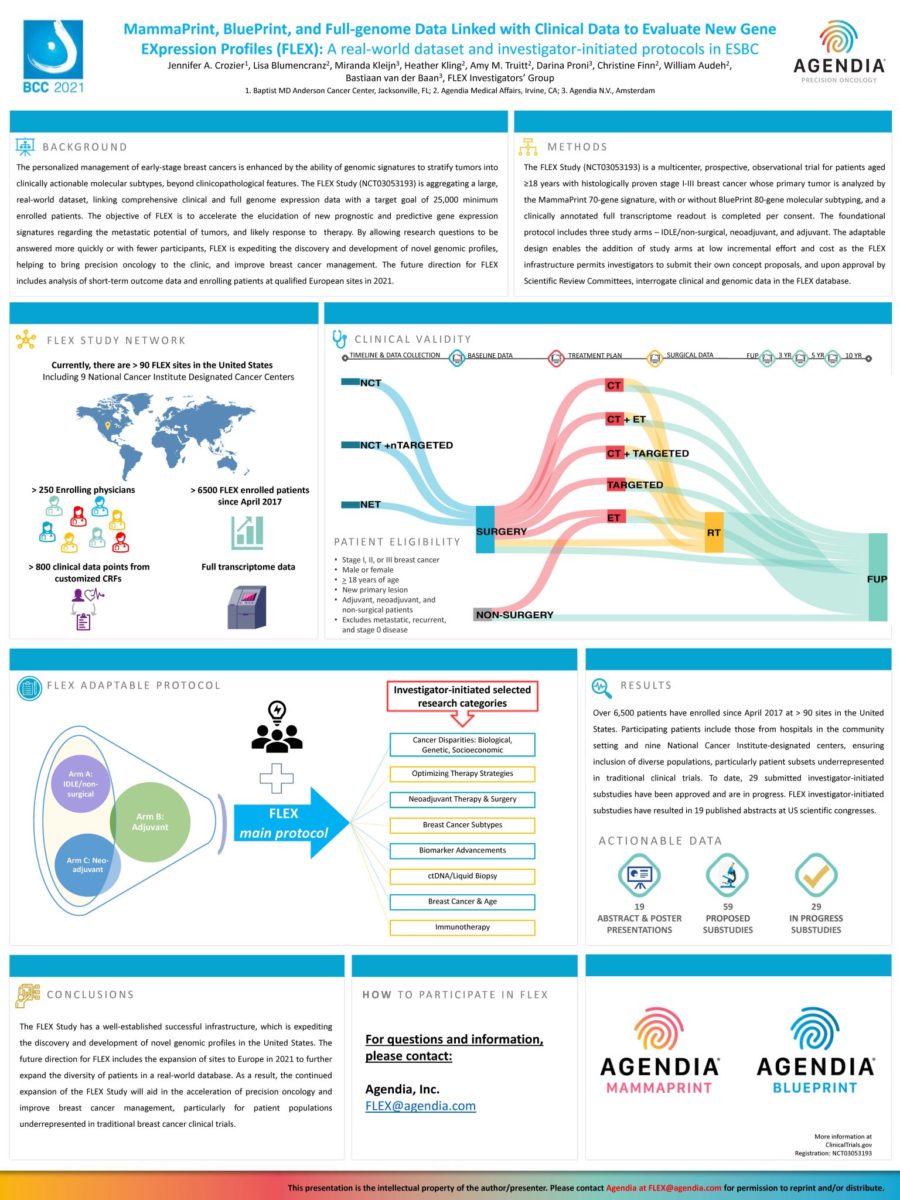Publication: St. Gallen
Authors:
Jennifer A. Crozier, Lisa Blumencranz, Miranda Kleijn, Heather Kling, Amy M. Truitt, Darina Proni, Christine Finn, William Audeh, Bastiaan van der Baan, FLEX Investigators’ Group
Background:
The personalized management of early-stage breast cancers is enhanced by the ability of genomic signatures to stratify tumors into clinically actionable molecular subtypes, beyond clinicopathological features. The FLEX Study (NCT03053193) is aggregating a large, real-world dataset, linking comprehensive clinical and full genome expression data with a target goal of 25,000 minimum enrolled patients. The objective of FLEX is to accelerate the elucidation of new prognostic and predictive gene expression signatures regarding the metastatic potential of tumors, and likely response to therapy. By allowing research questions to be answered more quickly or with fewer participants, FLEX is expediting the discovery and development of novel genomic profiles, helping to bring precision oncology to the clinic, and improve breast cancer management. The future direction for FLEX includes analysis of short-term outcome data and enrolling patients at qualified European sites in 2021.
Methods:
The FLEX Study (NCT03053193) is a multicenter, prospective, observational trial for patients aged ≥18 years with histologically proven stage I-III breast cancer whose primary tumor is analyzed by the MammaPrint 70-gene signature, with or without BluePrint 80-gene molecular subtyping, and a clinically annotated full transcriptome readout is completed per consent. The foundational protocol includes three study arms – IDLE/non-surgical, neoadjuvant, and adjuvant. The adaptable design enables the addition of study arms at low incremental effort and cost as the FLEX infrastructure permits investigators to submit their own concept proposals, and upon approval by Scientific Review Committees, interrogate clinical and genomic data in the FLEX database.
Results:
Over 6,500 patients have enrolled since April 2017 at > 90 sites in the United States. Participating patients include those from hospitals in the community setting and nine National Cancer Institute-designated centers, ensuring inclusion of diverse populations, particularly patient subsets underrepresented in traditional clinical trials. To date, 29 submitted investigator-initiated substudies have been approved and are in progress. FLEX investigator-initiated substudies have resulted in 19 published abstracts at US scientific congresses.
Conclusions:
The FLEX Study has a well-established successful infrastructure, which is expediting the discovery and development of novel genomic profiles in the United States. The future direction for FLEX includes the expansion of sites to Europe in 2021 to further expand the diversity of patients in a real-world database. As a result, the continued expansion of the FLEX Study will aid in the acceleration of precision oncology and improve breast cancer management, particularly for patient populations underrepresented in traditional breast cancer clinical trials.



